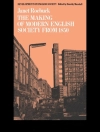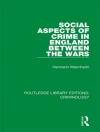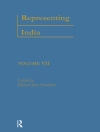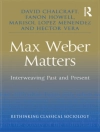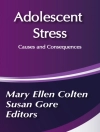The Russian intelligentsia is the historic phenomenon of an educated opposition, and it has provoked a substantial body of Russian and Western publications. This book focuses on the intelligentsia’s Myth, Mission, Metamorphosis as discovered in literature, journalism, and theater. The chapters define essential elements of the myth of the intelligentsia as a distinctive social group and a spiritual formation claiming high moral standards and expectations for the self and for society. Second, contributions explore how the intelligentsia sees its mission on various historical stages as inextricably linked with Russia’s (and the Soviet Union’s) cultural destiny, especially its literary and other artistic creations. Finally, the volume addresses the metamorphosis of the intelligentsia over centuries, as socio-political factors shaped its persistence and its perpetual transformation.
Tabela de Conteúdo
Acknowledgements
1. Introduction: The Intelligentsia in Russia: Shifting Terms, History, and Scholarly Approaches
Olga Partan and Sibelan Forrester
Part One: Pre-Nineteenth Century
2. An Essay on the Origins of the Intelligentsia: Catherine the Great and Her Relations with Novikov and Radishchev
Marcus Levitt
Part Two: The Nineteenth Century
3. The Intelligentsia in the Russian Press of the 1860s and 1870s
Konstantine Klioutchkine
4. Dostoevsky and the Intelligentsia
Alexander Burry
5. Accommodating the Intelligentsia: Tolstoyan Nonresistance as a Response to the Russian Intelligentsia
Michael Denner
6. The Russian Intelligentsia and Western Intellectuals: Through the Prism of Chekhov
Svetlana Evdokimova
Part Three: The Twentieth Century
7. Merchants vs. the Intelligentsia: The Case of the Moscow Art Theatre
Maria Ignatieva
8. A Bridgeable Schism? The Russian Silver Age Intelligentsia Holds Its Ground, Spruces up, and Proselytizes
Irene Masing-Delic
9. Landmarks (Vekhi)—the Russian Intelligentsia at a Crossroads
Olga Sobolev
10. The End of the Classical Intelligentsia?
Gary Hamburg
11. The Russian Knights Templar: A Secret Mystical Order and Its Legacy
Olga Partan
12. Remaking the Literary Intelligentsia (1930s-1940s)
Carol Any
13. The Soviet Intelligentsia and Thaw-Era Science Fiction
Sibelan Forrester
14. The Intelligentsia and the “Thick Journal”
Marina Adamovich
15. A Romantic Ironist or a New Intellectual? Tatyana Tolstaya and Her Critique of the Russian Intelligentsia
Alexandra Smith
Part Four: The Twenty-First Century
16. Ulitskaya and Pelevin on the Shestidesiatniki
Sofya Khagi
17. The Intelligentsia and the Intellectuals: A History of Two Terms in Russian Philosophical Discourse
Alyssa De Blasio
18. Legacy and Denial: Russian Intelligentsia on Screen and Online in the First Two Decades of the Twenty-First Century
Tatiana Smorodinska
Sobre o autor
Olga Partan is Associate Professor of Russian Studies at the College of the Holy Cross. She has authored a Russian-language memoir You were right, Filumena! (Moscow: PROZAi K, 2012) and the scholarly book Vagabonding Masks: The Italian Commedia dell’Arte in the Russian Artistic Imagination (Boston: Academic Studies Press, 2017); her Commedia dell’ Arte book was also translated into Russian (St Petersburg: Academic Studies Press/Библиороссика, 2021).


